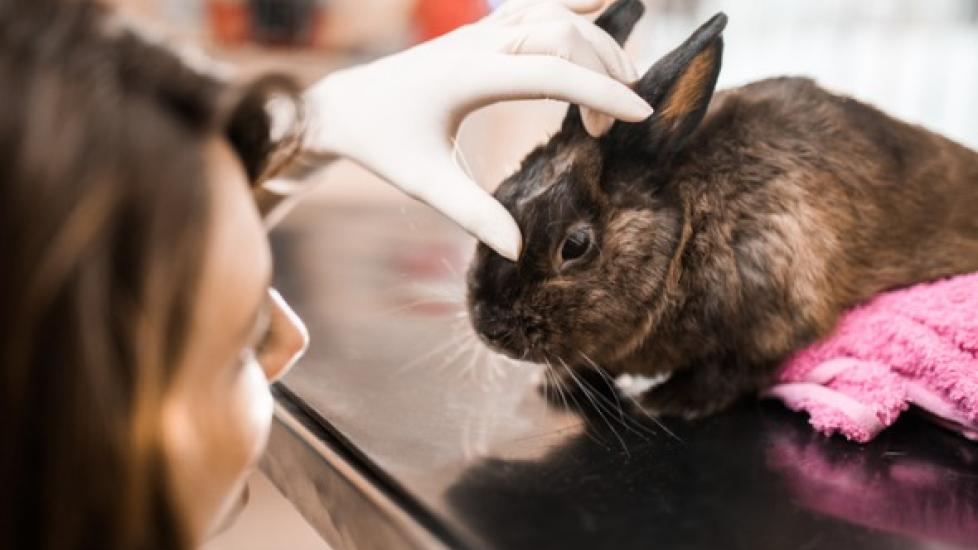Infection of the Brain Tissues in Rabbits
Encephalitis Secondary to Parasitic Migration in Rabbits
Secondary encephalitis is an infection of the brain tissues that is due to migration of parasites from other regions of the body. The incidence of this type of encephalitis is extremely rare.
Symptoms and Types
Symptoms can vary according to the area of the brain that is affected, but head tilt is one of the most commonly reported symptoms. There also may be motor problems with other body parts due to the nature of the nervous system involvement.
Causes
Secondary encephalitis is caused by the migration of a type of roundworm larvae into the central nervous system -- the brain -- resulting in infection and reactive inflammation of the brain and surrounding tissues. Rabbits that are exposed to outside environment may contract this by ingesting the parasitic roundworm Baylisascaris procyonis, a parasite that is known to be harbored by raccoons. This parasite is found in areas that were previously occupied by raccoons, and are ingested by other animals incidentally when they eat grass or hay that has been defecated on by raccoons. The parasite can also live for some time in soil that has had the fecal remains from an infected raccoon.
Diagnosis
You will need to give your veterinarian a thorough history of your rabbit's health and onset of symptoms. The history you provide may give your veterinarian clues as to which organs are causing secondary symptoms. Because there are many possible causes for conditions of the central nervous system, your veterinarian will most likely use differential diagnosis. This process is guided by deeper inspection of the apparent outward symptoms, ruling out each of the more common causes until the correct disorder is settled upon and can be treated appropriately.
Standard laboratory work will include a complete blood profile and urinalysis, and an analysis of blood serum to identify the exact type of infection that is causing the brain tissue to be inflamed. Visual diagnostics will include X-ray studies of the skull and the areas around the ear, and computed tomography (CT) and magnetic resonance imaging (MRI) studies for determining the extent of the infection.
Treatment
Specific antibiotics can be given to target the infection, along with careful administration of corticosteroids to relieve the inflammation and swelling of brain tissue. The involvement of the central nervous system makes this a particularly dangerous infection. Unfortunately, this is a difficult infection to diagnose, and most cases are not diagnosed until after the animal has died. The prognosis, therefore, is extremely guarded.
If the onset was sudden, the disease may progress rapidly, warranting euthanasia.
Living and Management
Raccoons are known to carry this parasite, it is strongly advised that you not graze your rabbits in areas that are known to be frequented by raccoons. Because the roundworm parasite can live for years in the infected soil of some environments, to best protect your rabbit, you will need to be sure that the area has been raccoon free for several years.
Featured Image: iStock.com/skynesher
